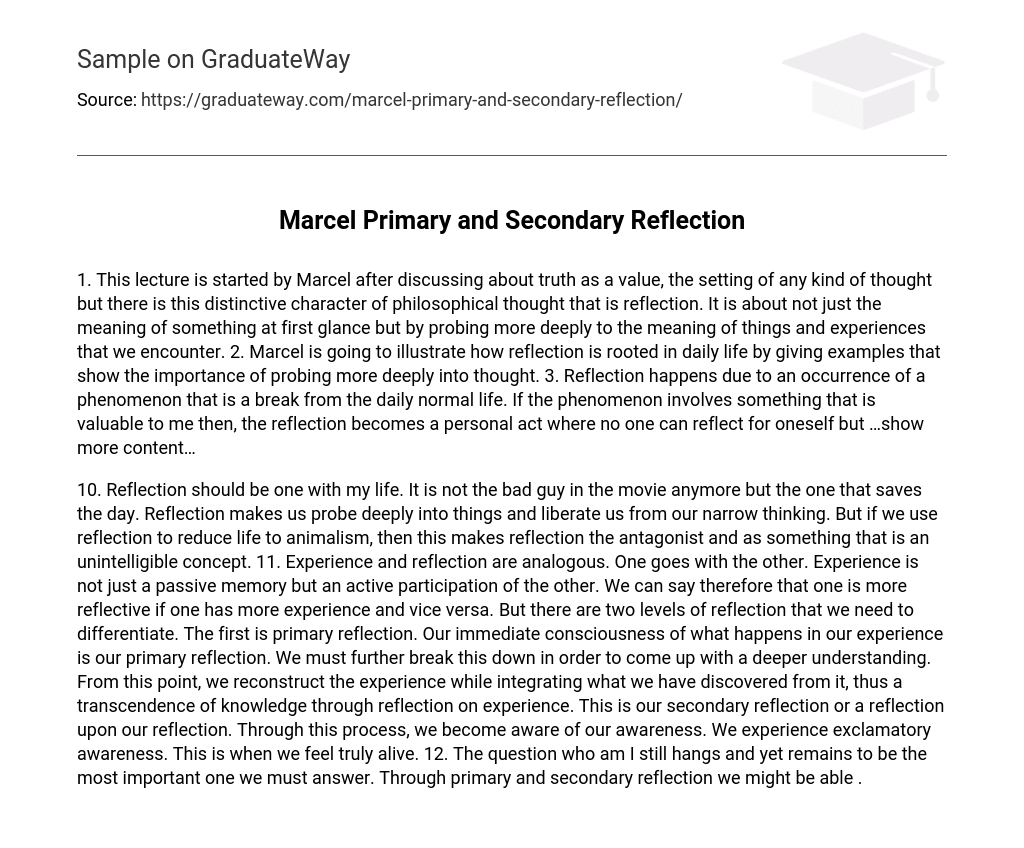1. Marcel starts this lecture by discussing truth as a value and the importance of reflection in philosophical thought. Reflection involves delving deeper into the meaning of things and experiences, rather than accepting them at face value.
2. Marcel will illustrate the significance of reflection in daily life through examples that emphasize the need to explore thoughts more deeply.
3. Reflection occurs when there is a deviation from the norm in our daily lives. If this deviation involves something valuable to us, reflection becomes a personal act that cannot be done by anyone else.
Reflection plays a significant role in my life, transforming from the antagonist in movies to becoming the hero that saves the day. It allows for deep exploration and liberation from narrow thinking. However, if reflection is used to reduce life to mere animalistic behavior, it becomes an incomprehensible concept and adopts the role of the antagonist.
Experience and reflection are interconnected elements that go hand in hand. Experience is not just passive memory but active engagement with others. Hence, it can be stated that greater experience leads to increased reflectiveness, and vice versa. Nonetheless, it is important to differentiate between two levels of reflection: primary reflection denotes immediate consciousness of experiences; while deeper understanding requires analysis and integration of what we have learned from these experiences – this leads us to secondary reflection or reflecting upon our initial reflection. Through this process, we become aware of our own awareness and experience a heightened sense of being alive.
Though uncertainties about my identity persist, addressing this question remains significantly crucial for me. By embracing primary and secondary reflection, answers may potentially be discovered.





